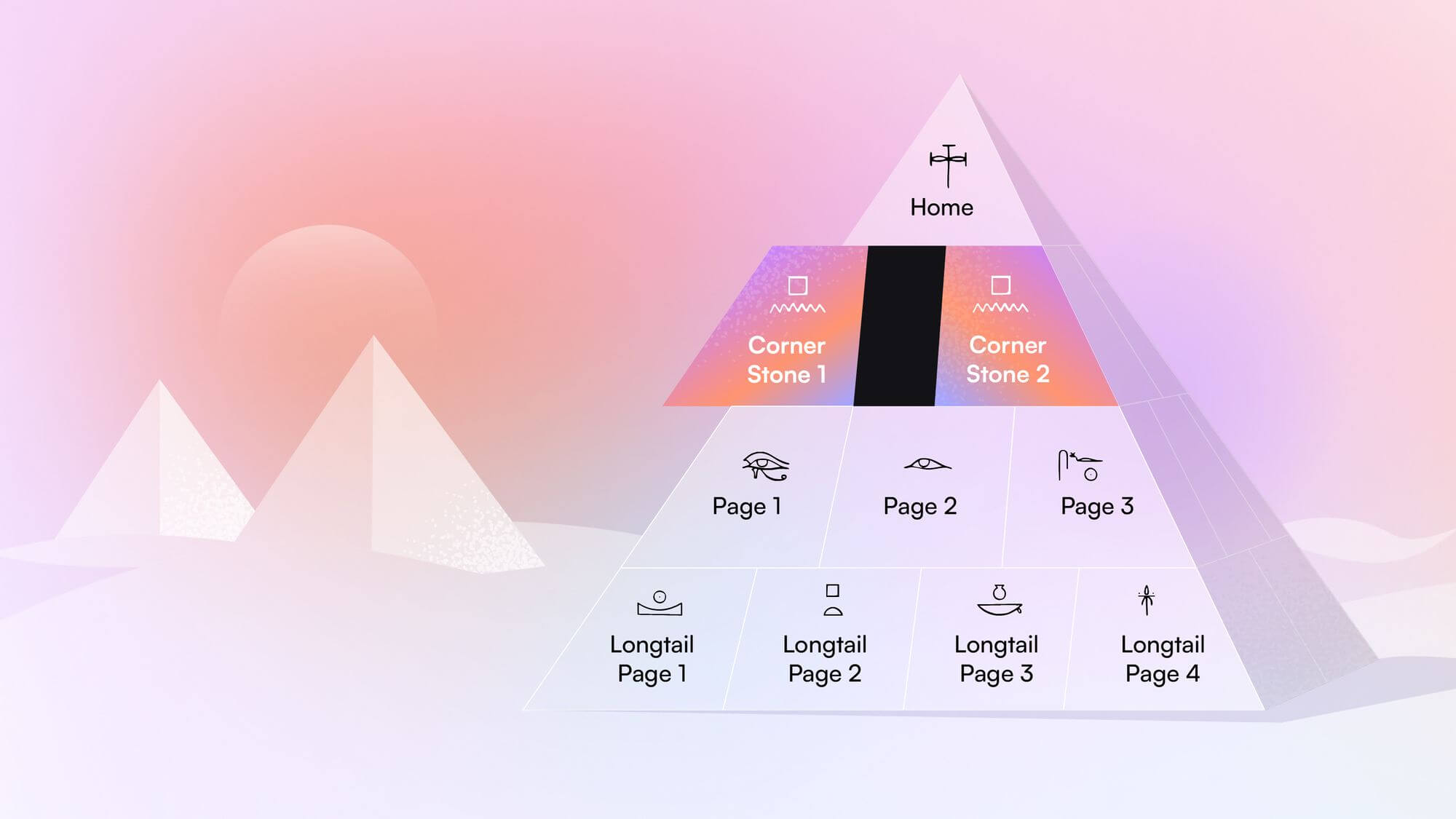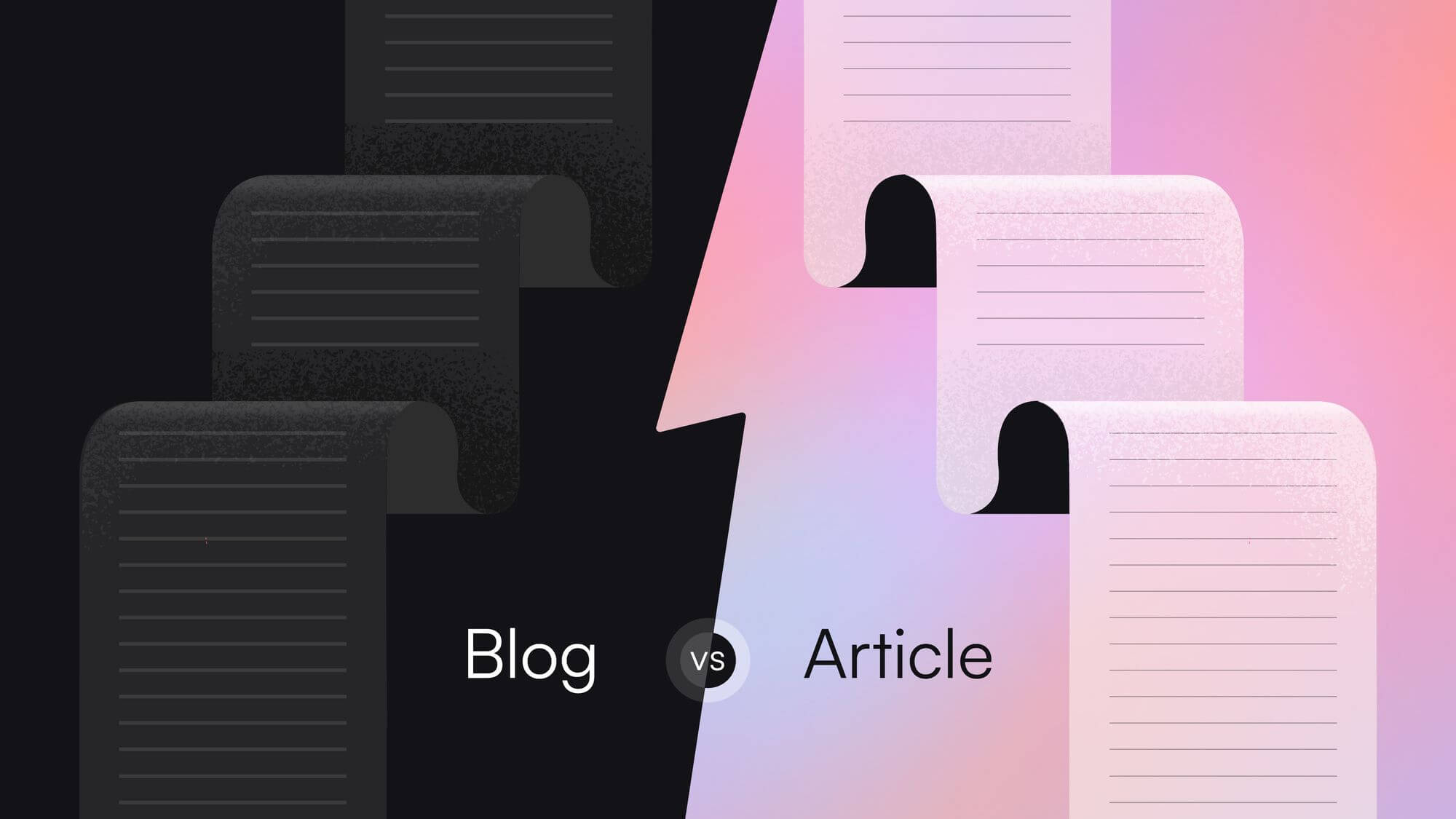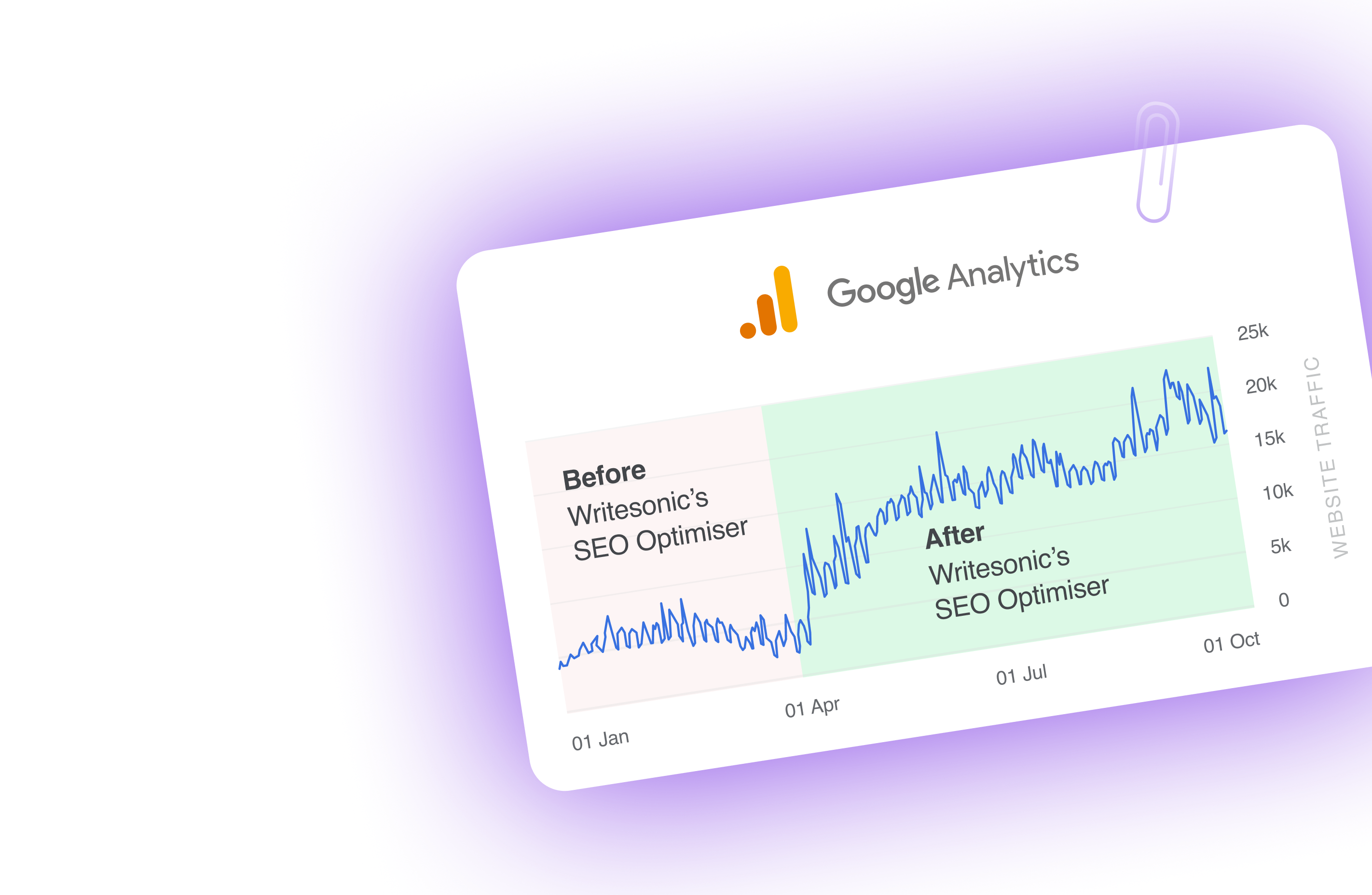Becoming a content writer doesn’t involve rocket science, to be honest. If you’ve got a flair for writing and a topic to write on, you can write away to your heart’s will.
However, becoming an in-demand, up-to-date content writer who can deliver what businesses want? That requires some level of knowledge and guidance and a lot of practice.
But how exactly do you get started with content writing? In this guide, I’ll cover all of this. From telling you what a content writer is to discussing the skills, tools, and steps for how to become a content writer — this comprehensive guide is all you require to kick-start your career.
Again, no rocket science. Dive in and see for yourself.
First things first…
What Is a Content Writer?
A content writer is someone who creates written content for businesses. This can be blogs, whitepapers, guides, ebooks, or any other long-form content, usually used as marketing material by businesses.
Don’t confuse this with the other term i.e. copywriting. While copywriting feels similar to content writing, it includes more ad copies, social media posts, landing pages, and other short-form content, making it a different niche altogether.
For simplicity’s sake, let’s only focus on how to be a content writer in this guide.
Now, content writing is one of the best career options you can choose if you like writing. Most content writers in the U.S. make around $61k on average every year, which is a good amount.
There are also different types of content writing you can do. This includes blog writing, SEO writing, ghostwriting, and so on.
However, if you think that all that content writers do is write, then you’re missing out on the bigger picture. Apart from writing, content writers also need to research topics, conduct competitor analysis, edit written content, do search engine optimization, and sometimes, also design graphics.
Sounds confusing? Let me break it down by going through each skill in depth.
Essential Skills To Become a Content Writer
If you want to become a content writer, you need a host of skills under your belt. Some of the top content writer skills include:
- Writing: This one’s obvious. If you want to know how to become a content writer, you need to be fairly good at writing. Adapting to different tones and writing styles is also something you’d want to learn.
- Editing: Spotting grammar errors, fixing comprehension issues, fact-checking, and other editing tasks. This is something you need to do to make sure your content is polished and easy to read.
- Research: Before starting to write, developing a fair understanding of the given topic is crucial. You can either search the topics through Google, look for news articles and whitepapers, or even refer to books. But to do this, you should know how to research — a key skill to become a content writer.
- Search engine optimization (SEO): If businesses are commissioning long-form content, especially blogs, and whitepapers, it’s usually to rank on the first page of SERPs and get more organic traffic. Search engine optimization (SEO) makes this possible. SEO is the strategy of placing certain keywords and links in the content to make it rank higher in search results. If you’re well-versed in SEO, it makes you more valuable as a content writer (more on this later).
- Familiarity with AI tools: AI writing and editing tools are becoming more mainstream. In the past few years, businesses have become more open to and actually want to streamline their content creation process using AI. If you want to be a content writer who’s highly productive and up-to-date with the latest trends, a knowledge of AI tools is a must.
Check out our list of top AI writing tools you can try out as a content writer.
This list isn’t comprehensive. Say one of your clients wants complimentary graphics with a blog post. Then, having design skills might also come in handy. Or say a niche company that deals with medicine or law hires you as a writer. Having knowledge of these fields proves to be a great advantage.
You can read more about the characteristics and skills required to become a content writer in this guide.
Ultimately, different skill types can earn you different writing jobs. But the crux of the career — writing, editing, research, and recently, AI — remains the same.
Tools of the Trade: What Content Writers Use
When I first started writing, I’d carry out the research and editing process manually. But soon I learned that using tools and technologies to handle these mundane tasks, allowed me to focus on the more productive processes, such as actually writing or editing.
If you also want to start two steps ahead of other content writers, here are some tools to consider:
- Writing and editing software that helps generate blog posts, listicles, how-to guides, whitepapers, and a lot more. A good example is Writesonic’s Article Writer 6.
- Keyword research tools, SEO optimizers, and other SEO tools. You can check out the host of SEO tools available at Writesonic.
- Content management systems like WordPress and Ghost to upload and manage content on the client’s website.
- Research, fact-checking, and brainstorming tools. My go-to tool is Chatsonic for these use cases.
- If required, try learning the basics of design tools like Photosonic and Canva.
Now that you’re familiar with the skills and tools you require, let’s move on to the part you’re waiting for the most — “How to become a content writer?”
How To Become a Content Writer: Your Step-By-Step Guide
To become a content writer, you need to first develop your writing and SEO skills, take courses and get certifications, and build a strong portfolio. This will further help you explore new opportunities and market yourself, which contributes to your experience.
I’ll explain each step of how to become a content writer in detail below:
1. Develop Your Writing Skills
If you expected to complete a degree or course to directly become a content writer, let’s take a step back. Unlike many other careers, content writing is skill-heavy. While a degree or a course helps (we’ll discuss this in the next step), your content writing skill is your biggest asset.
And how do you develop that? Purely by practice.
Practicing writing as the first step helps you in two ways. Apart from developing your skill, it also gives you an idea of whether pursuing content writing is right for you — much before you invest too much time, energy, and resources in it.
One of the best ways I developed my content writing skills initially was to randomly pick a topic and start writing on it. The topics would range anywhere from “The best TV shows from the 90s” to “The benefits of drinking green tea.”
Once the writing was done, I’d go back, read the piece, compare it with other similar pieces on the internet, and spot areas where I could improve. Now, while I did this manually, I’ll suggest a better way for you to practice writing.
Open this conversational AI tool called Chatsonic. It’s like having a writing tutor-cum-assistant, always at your fingertips.
Ask it to suggest topics to write on:
Once you get a couple of suggestions, pick one and start writing on a separate document. Research the topic by running a Google search, read the relevant articles, and write a properly-structured piece of your own.
Not sure how to write? Here’s a step-by-step guide on how to write an article.
Once you’re done writing, paste the draft into Chatsonic and ask it to analyze your writing:
The chatbot gives detailed feedback on your article, pointing out what you’ve done right and what you need to do better.
Consider this feedback, work on other drafts, and ask Chatsonic to analyze it again till you’re satisfied with the quality of your writing.
2. Educate Yourself
Once you’ve practiced AND decided that content writing’s for you, it’s time to take the course you’ve been eyeing for the longest of time.
Having a formal degree or education in content writing is in no way a replacement for practice. But it does help refine your skills, equip you with complementary knowledge, and better prepare you to apply for jobs and gigs related to content writing.
There are multiple ways to learn about content writing. The most straightforward way is to obtain a bachelor’s degree in marketing, writing, journalism, or English from a reputed university. Most job opportunities prefer degrees in these or related fields.
However, obtaining a bachelor’s degree takes years. If that’s not your cup of tea, you can always opt for certifications from reputed institutions and companies. Hubspot’s Content Marketing Certification is a widely recognized certification in the content industry. It’s self-paced and completely free.
Apart from that, you can also look through Udemy, Coursera, and other online learning websites for relevant courses. Coursera offers excellent certifications from renowned universities.
Similarly, Udemy hosts courses from experienced content writers — so you’ll always learn from the best.
While only completing the course is an option, you can take an exam at the end of the course to gain a certification. Personally, I recommend going for the certifications as they add weight to your resume.
One of the best skills to learn as a content writer in 2025 is using AI writing tools. As artificial intelligence advances, many companies are employing AI tools like Article Writer 6 to scale content production and save costs.
Having these AI tools on your resume indicates that you’re an up-to-date writer with in-demand skills, improving your chances of getting hired.
Remember, taking a course or pursuing a degree isn’t mandatory. You can still have a solid career in content writing, even if you skip this step.
3. Build a Compelling Portfolio
Regardless of whether you’ve done a course or not, starting out as a content writer and getting the first project can be difficult. And without projects, you’ll not be able to build a portfolio, right?
Well, everybody’s started somewhere. Even without a pilot project, you can still build an attractive portfolio by choosing one of these options:
Self-publishing
Remember those practice samples you wrote? Publish them on self-publishing platforms like Medium and LinkedIn to build your online portfolio. Many established writers gained recognition publishing on Medium alone.
While the platform in itself is excellent for writers, it also helps compile a professional-looking writing portfolio you can share with potential clients.
Creating your own blog
If you’re not a fan of platforms like Medium, consider publishing blogs on your own website. Use popular website-building tools like WordPress to set up a minimal writer website, host a blog, and upload your articles.
This makes a good writing portfolio, alright. It also makes you appear professional, leaving a great first impression on clients.
Guest posting
Another popular way of becoming a content writer is by guest posting.
Guest posting is the practice of writing and publishing an article on someone else’s website or blog, usually to gain exposure and build authority.
Several websites allow budding writers to publish free guest posts.
💡Pro Tip: You can find guest posting websites by running a Google search with the queries “topic+guest posts,” “topic+ write for us,” or “topic+contribute.”
For example, here’s a search I ran for digital marketing guest post websites:
Choose any of the websites, read the guidelines, and send in your article. Typically, the websites may take anywhere between a couple of weeks to a month to publish the articles.
Whether you’re choosing to publish guest posts or write articles for your own website — producing multiple content pieces in a short span of time can be hard. If you want to get started with content writing projects quickly, use AI writing tools to speed up your portfolio creation process.
Tools like Writesonic’s AI Article Writer 6 help draft well-researched, human-like articles that you can publish with minimal editing. It’s also a popular tool used by several writers and businesses, so having hands-on experience with Writesonic is definitely an advantage.
Check how I generate content using the Article Writer 6. First I choose the topic and the type of article I want:
I choose the keywords to target.
And that’s it. With a few more instructions, the tool’s giving me a publish-ready article:
You can simply copy-paste this on your blog, self-publishing platform, or a guest posting website.
But wait, did I say keywords? Yes, keywords, and SEO in general, are important for long-form article writing. If you don’t know what that means, let’s jump to the next section.
4. Master SEO Basics
Search engine optimization (SEO) is the practice of optimizing websites and online content to improve their visibility and ranking in search engine results pages. In simpler words, it helps make your content easier to find on search engines.
But SEO isn’t a single strategy. It’s actually a bunch of techniques and practices. As a content writer, you’re responsible for implementing only some of these techniques, mainly known as on-page SEO.
These techniques include:
- Keyword research: “Keywords” are terms and phrases your target audience uses when looking for information on search engines. Keyword research involves identifying the relevant terms as per the topic using keyword research tools.
- Keyword placement: Simply researching keywords isn’t enough. When writing content, you need to place them strategically to maintain readability while also getting SERP rankings.
- Article structure: The structure of the article, including the title, headings, paragraphs, and formatting also impacts SEO.
- Content optimization: Optimizing the content by adding images, title tags, meta descriptions, alt text, and internal and external links is also an important SEO skill.
Read more about the SEO skills you require to optimize a blog in this detailed guide.
One of the best tools you can use to ensure proper content SEO optimization is this SEO Checker and Optimizer by Writesonic. Simply add any of your articles in the tool…
And it’ll give you the SEO score plus lots of suggestions on how you can optimize the content better for SERP rankings. If you’re new to SEO, this tool is great to learn and practice your skills.
If you’re unsure how to use the tool, check this detailed guide on using the SEO Optimizer.
5. Gain Valuable Experience
Okay. So now you’ve got your portfolio ready and your skills polished, and you’re ready to get some earning with content writing. Let’s not wait and jump straight to the point: your career options!
As a content writer, there are broadly two types of career paths you can choose:
- Freelancing: It’s like being your own boss. You pick your projects, set your hours, and work with multiple clients. It’s great if you love variety and flexibility, but can be a bit unpredictable.
- In-house writing: This is your traditional 9-to-5 gig. You work for a single company, focusing on their content needs. It’s more stable but you might have less variety in your work.
You can consider what works best for you, and then choose the further steps. Regardless of whether you freelance or choose an in-house position, the process of applying for opportunities remains the same.
You apply for open opportunities, talk with the business, company, or client, and secure a deal. However, the platforms and the way of approaching differ.
If you want to freelance, you can use:
- Social media platforms: Platforms like LinkedIn and Reddit have several posts offering freelance writing opportunities. But it takes some time to get engagement and build your personal brand on these platforms.
- Freelancing platforms: These are apps designed for people wanting to hire freelancers or deliver service as one. Some good examples are Upwork and Fiverr. But these platforms usually charge a commission.
If you want an in-house position, you can use:
- Job boards: Platforms like Indeed and Glassdoor regularly post open positions in the writing industry.
- Company websites: If there’s a specific company you want to work for, check their website’s “Careers” section for open positions.
For both freelance and in-house positions, check out writing and media-specific job boards like ProBlogger and Qwoted.
If you’re still a student or want to gain some experience before starting a full-time position, you can always try for internships at reputed media houses and writing agencies.
Final Thoughts: What is a content writer and how to become one
That’s it! With a few simple steps and a planned approach, you can become a content writer with ease. Once you gain some experience and write on a variety of topics, I suggest you niche down to a few domains that you like.
This will help gain more knowledge and experience about a particular topic, which increases the value of any writer.
Apart from that, always stay updated with the latest writing trends, especially with AI tools like Writesonic. As the quality of generative AI tools is growing, more companies are looking for writers who implement AI in their workflow and boost productivity.
With Writesonic, you’ll not only be able to generate quality articles but also conduct keyword research and optimize content for search engines.
Ready to kickstart your journey as a content writer? Try Writesonic for free today!


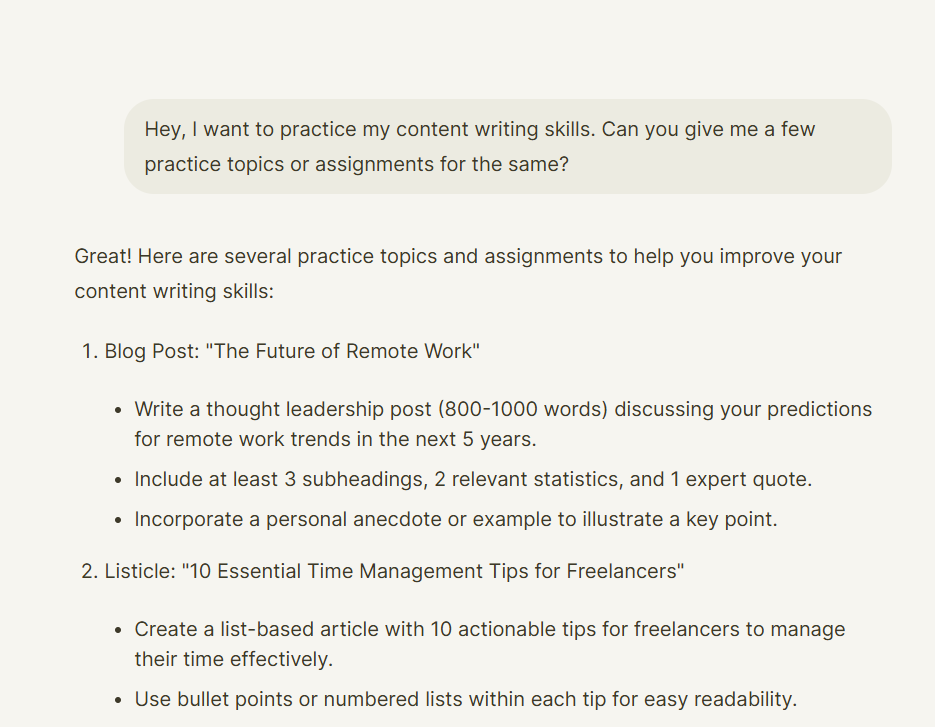
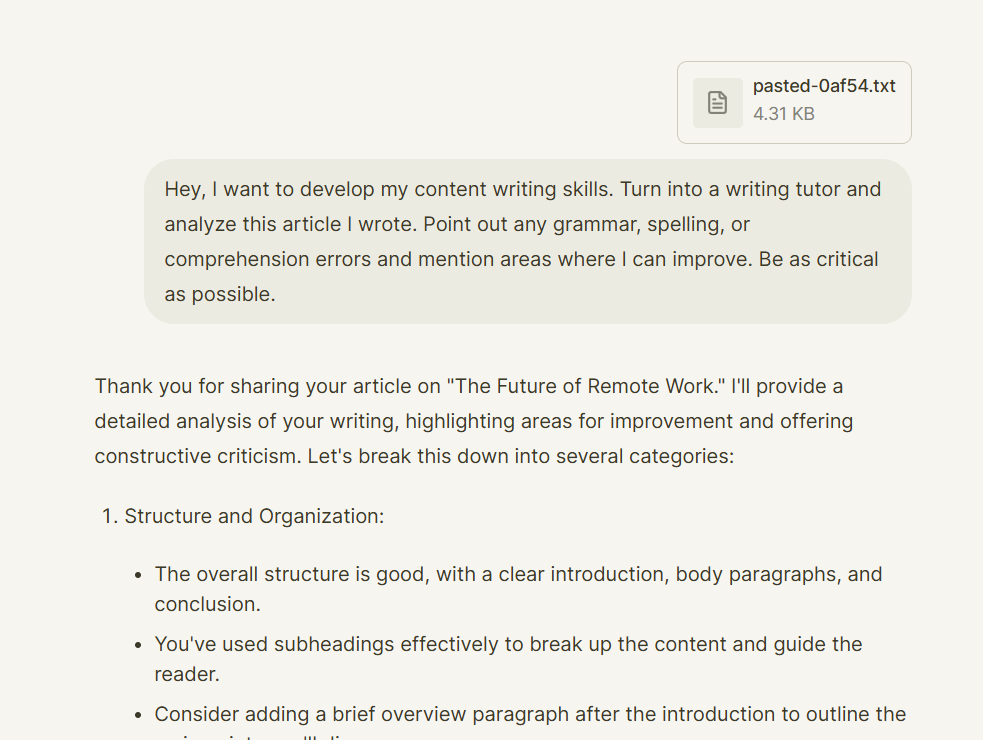
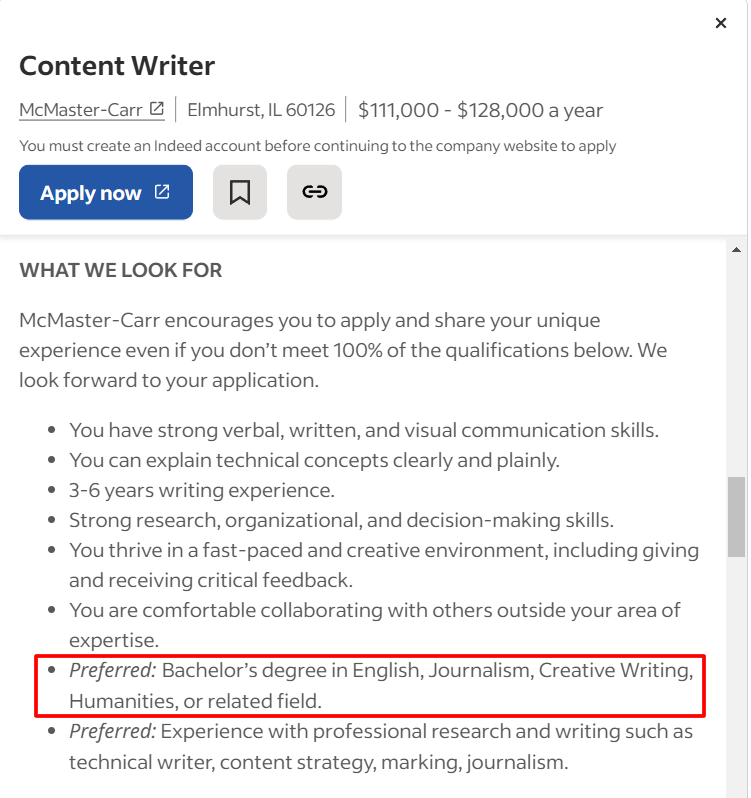
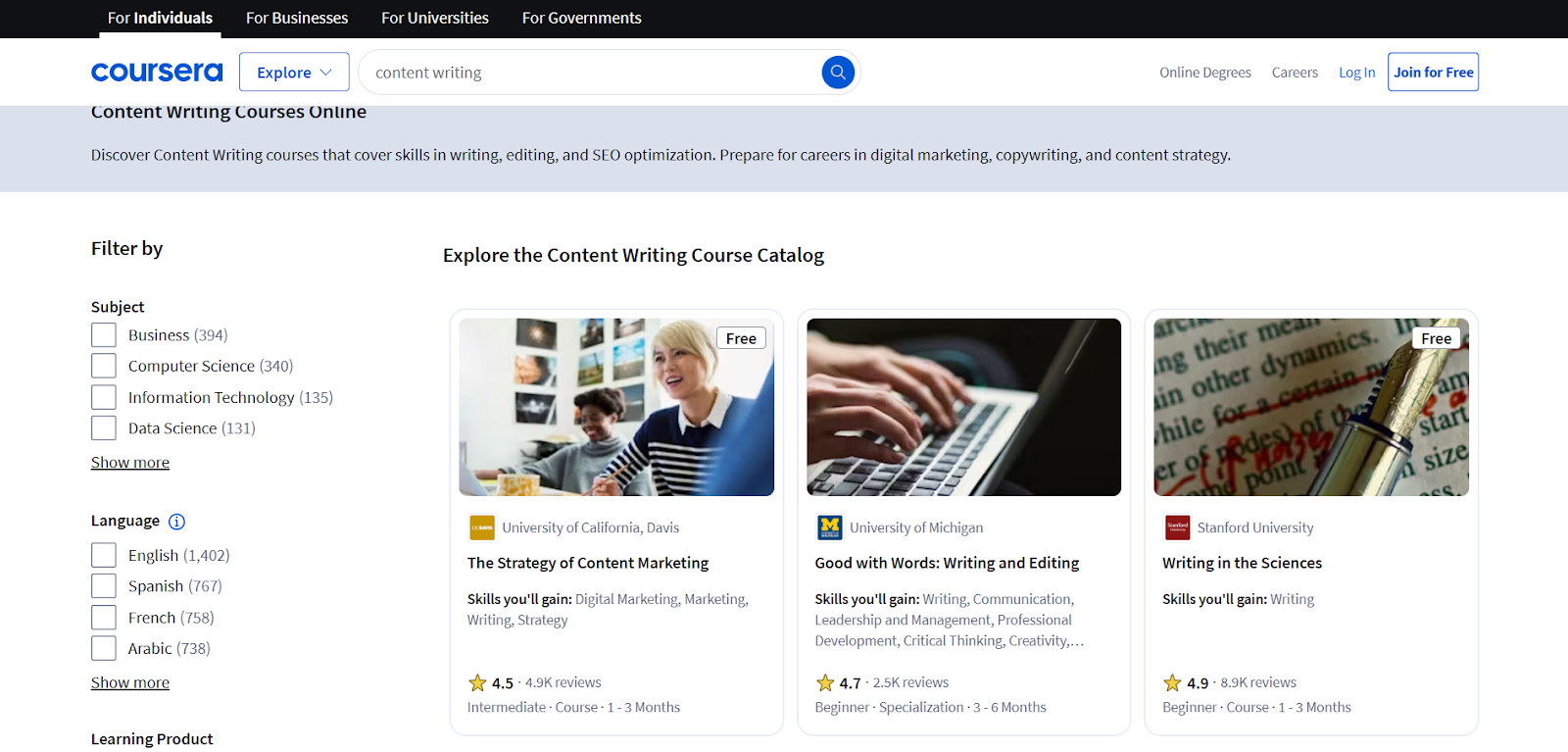
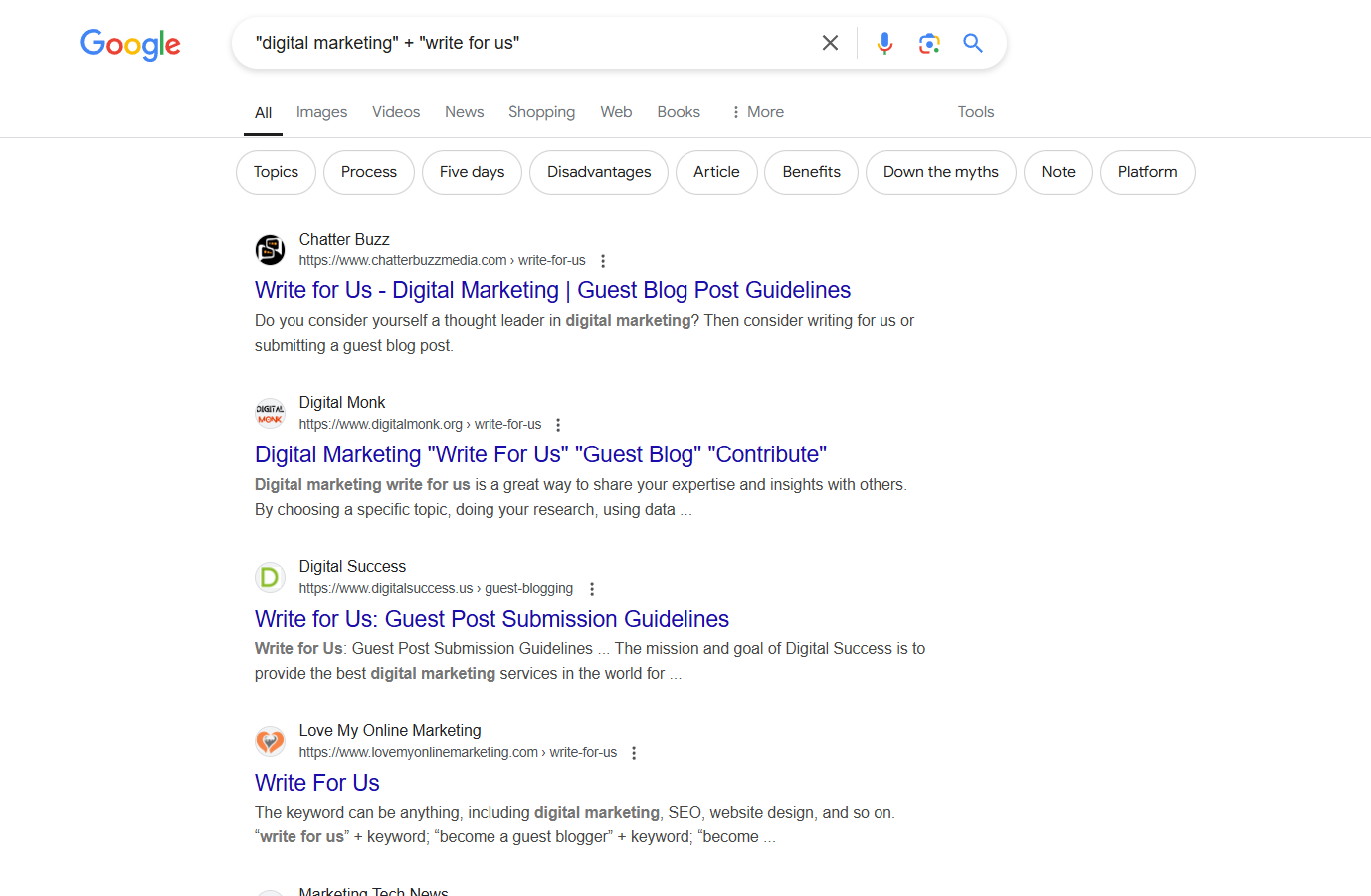
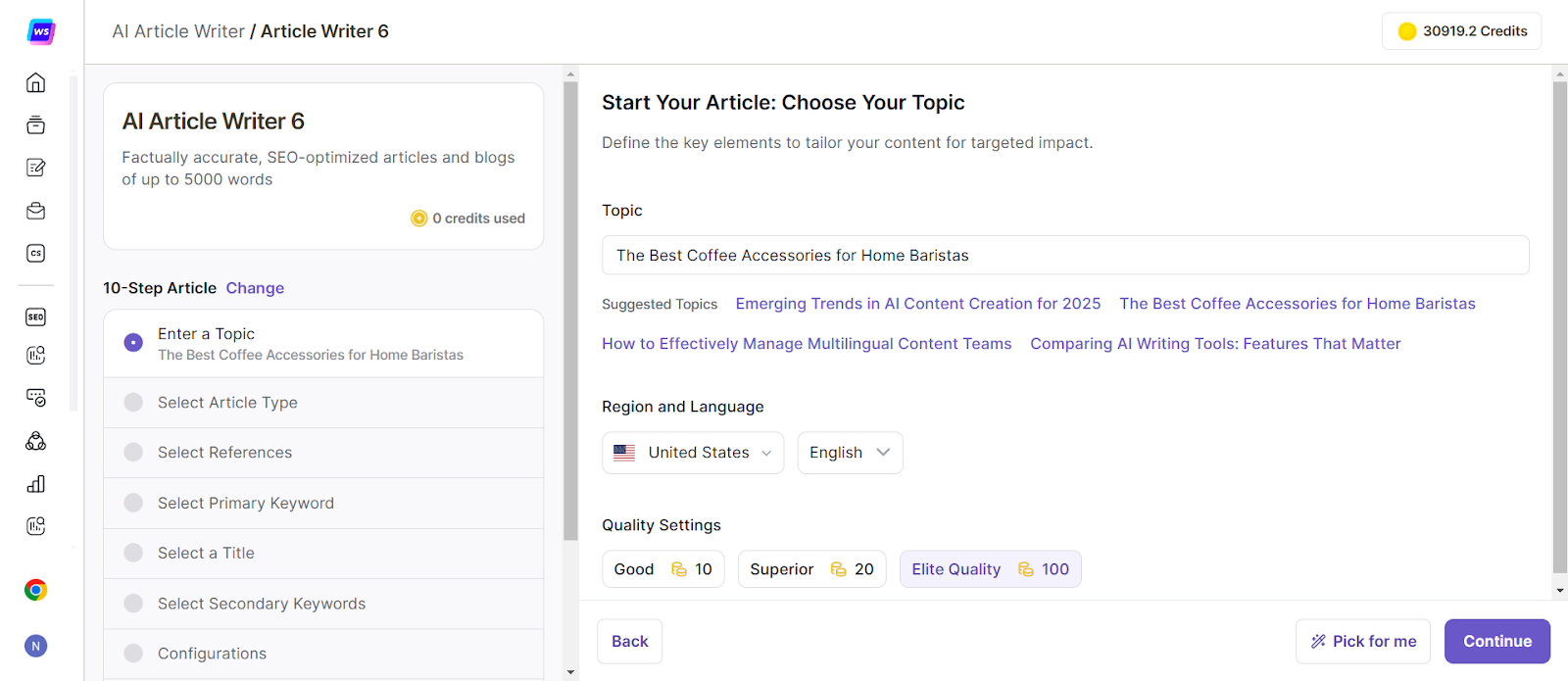
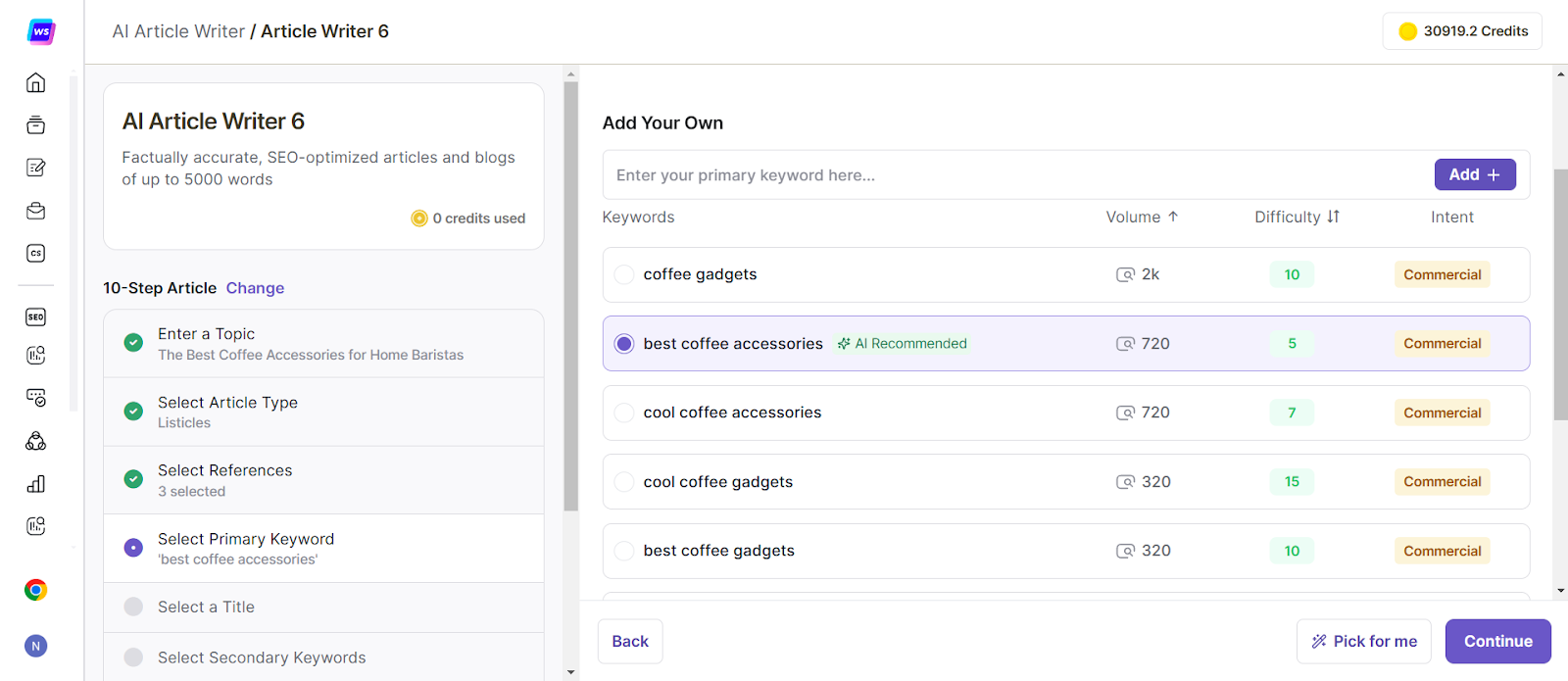
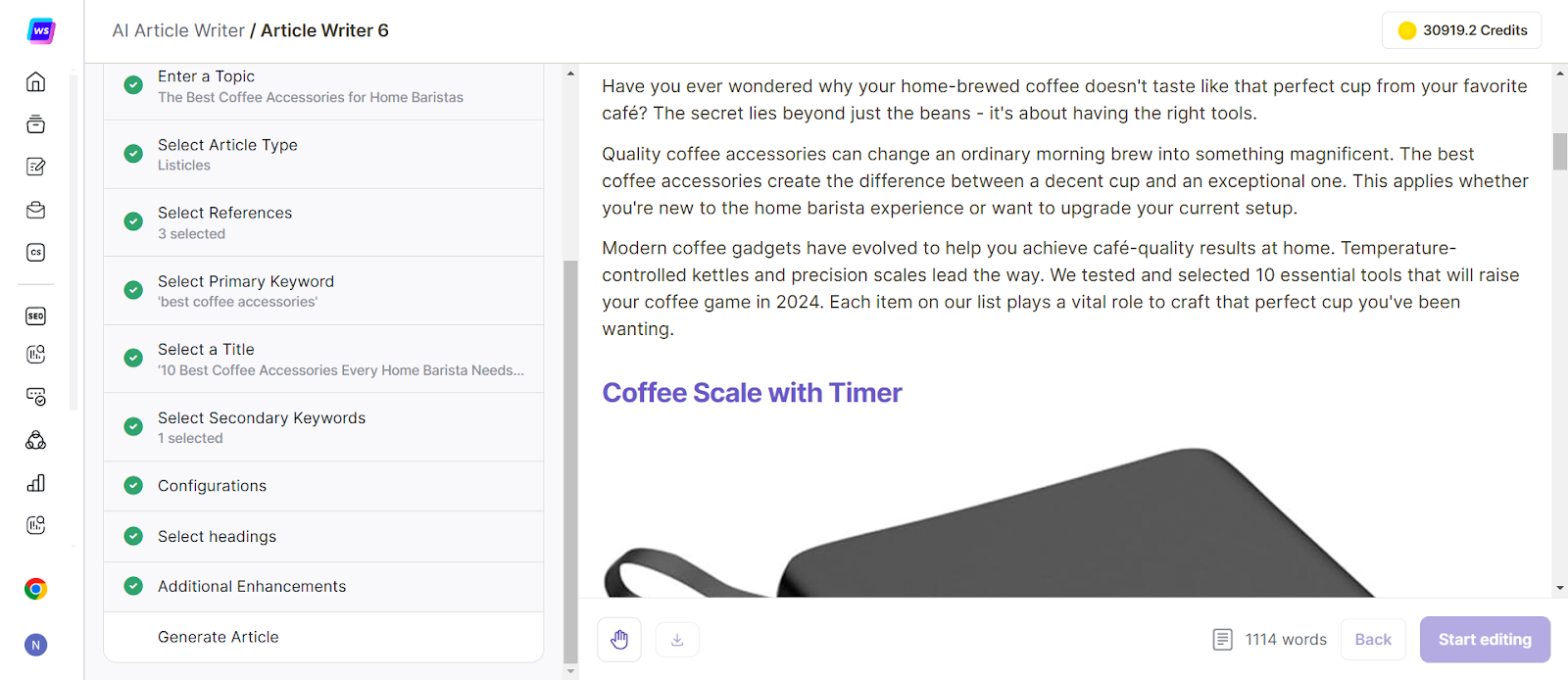
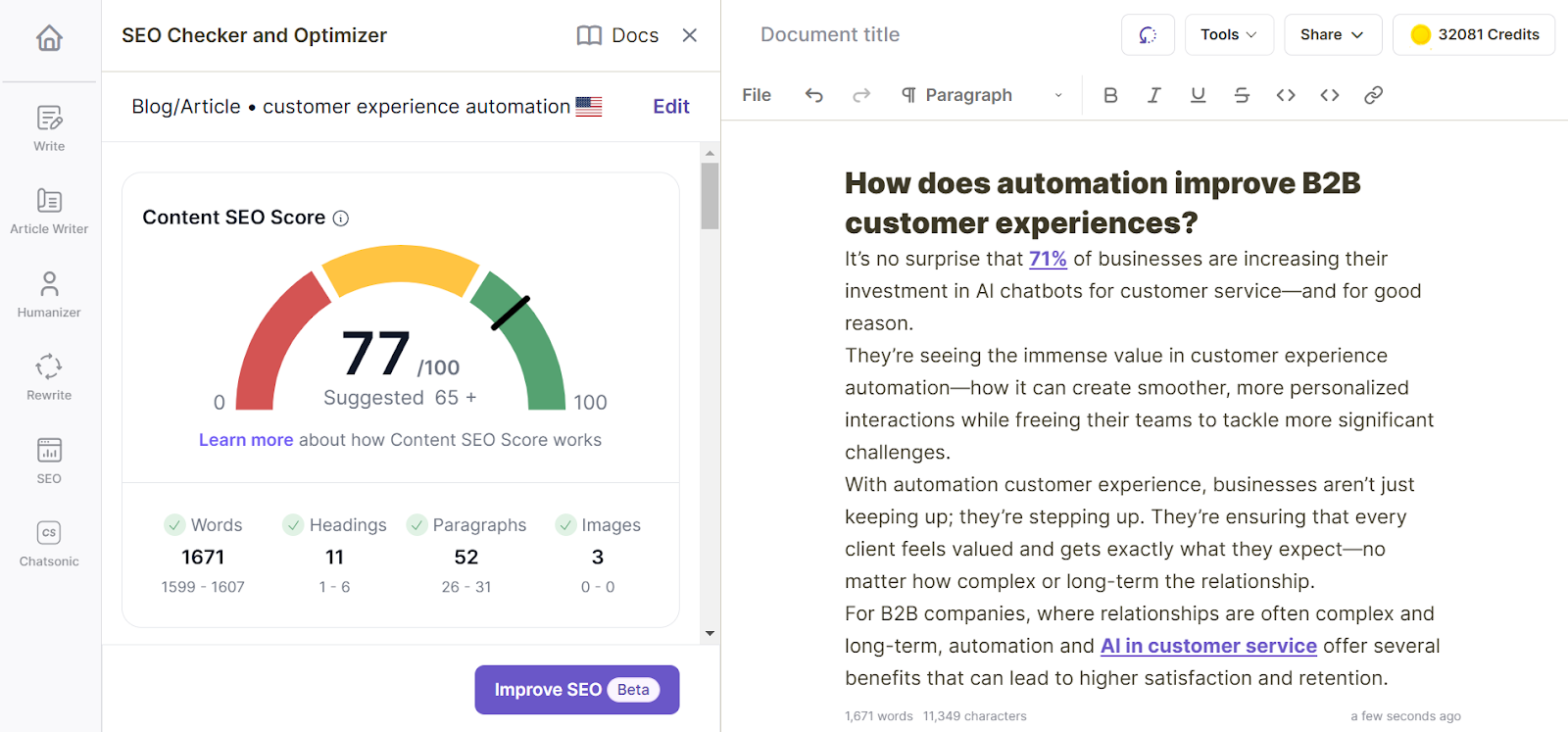






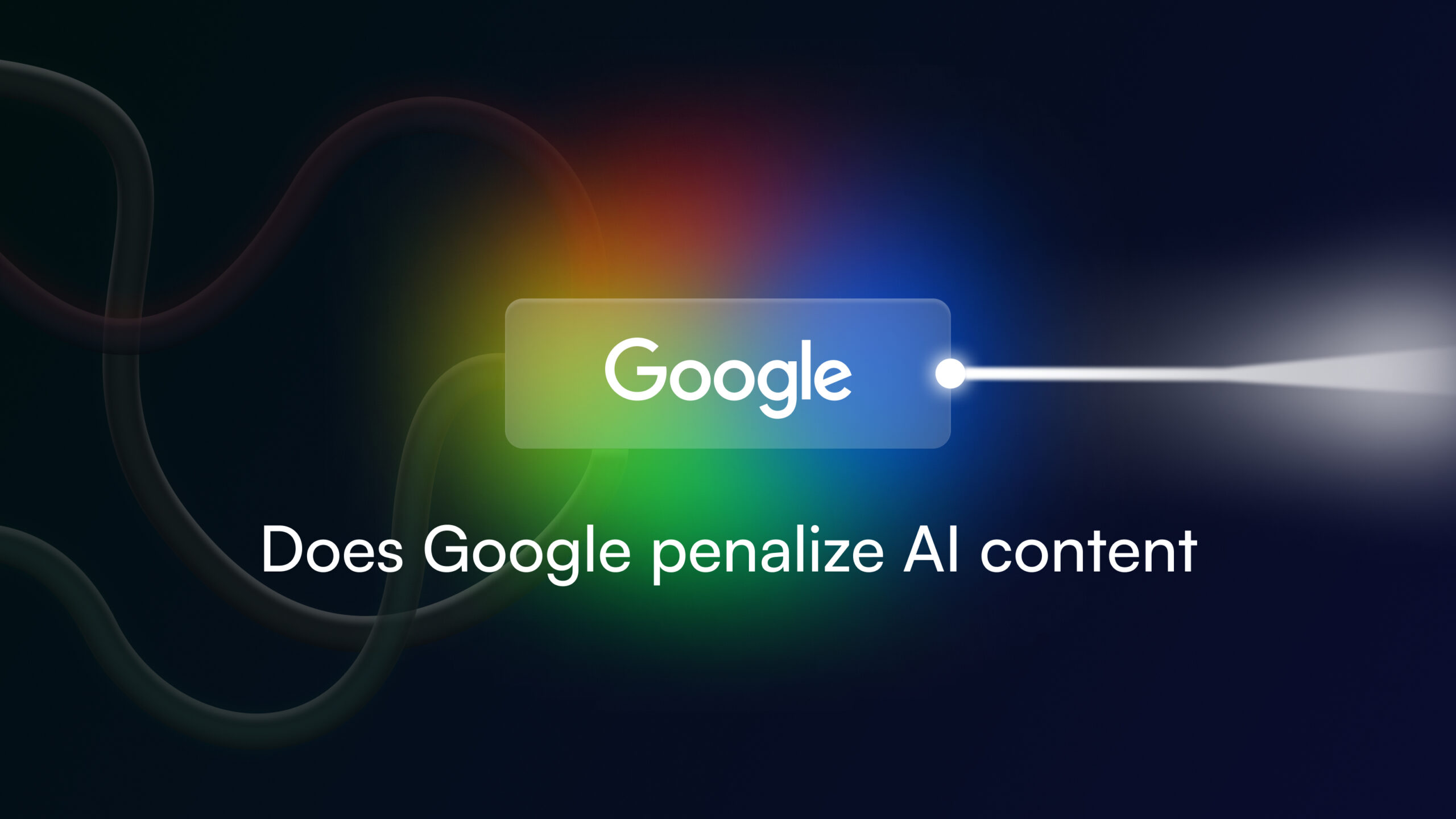

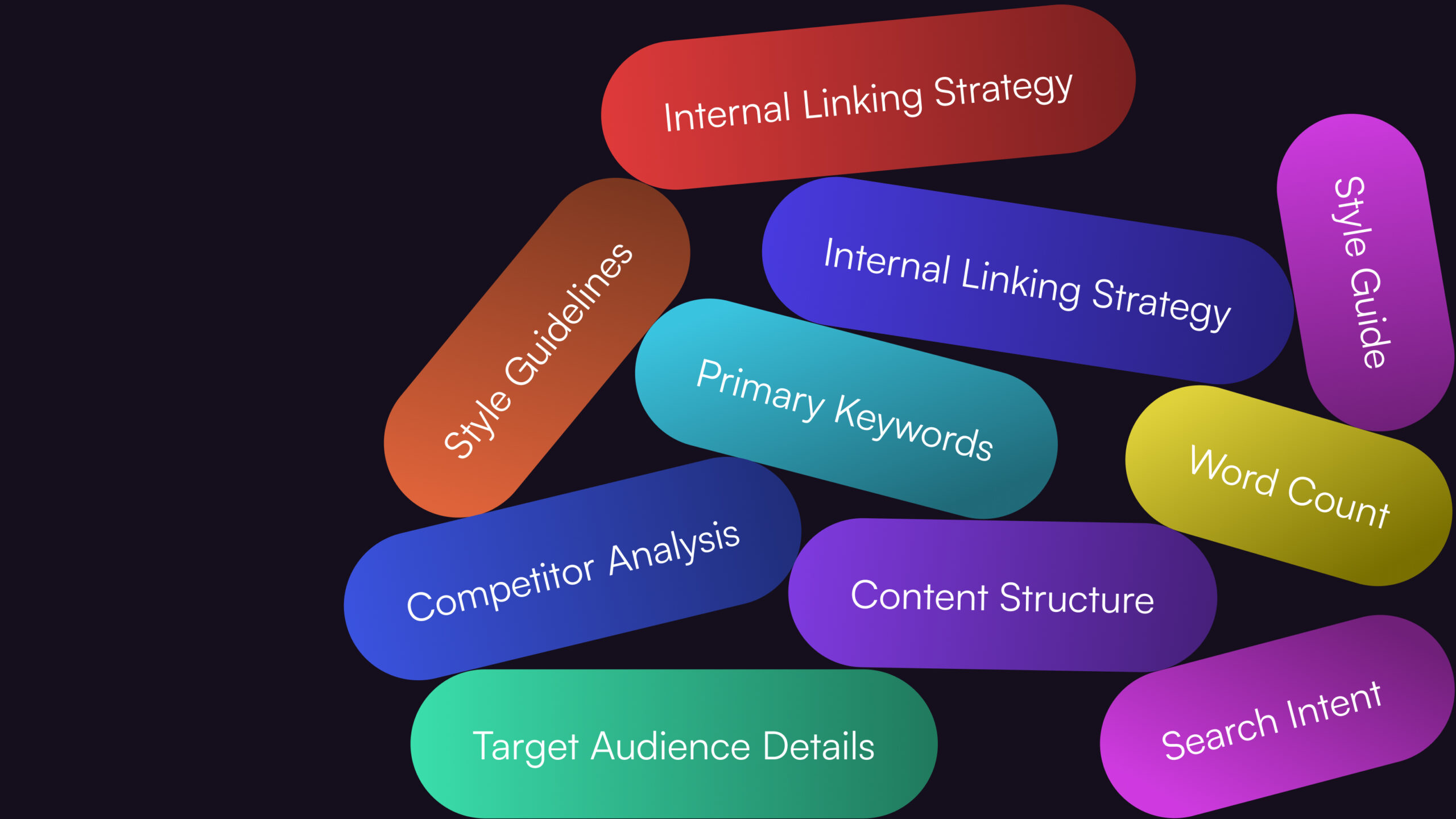

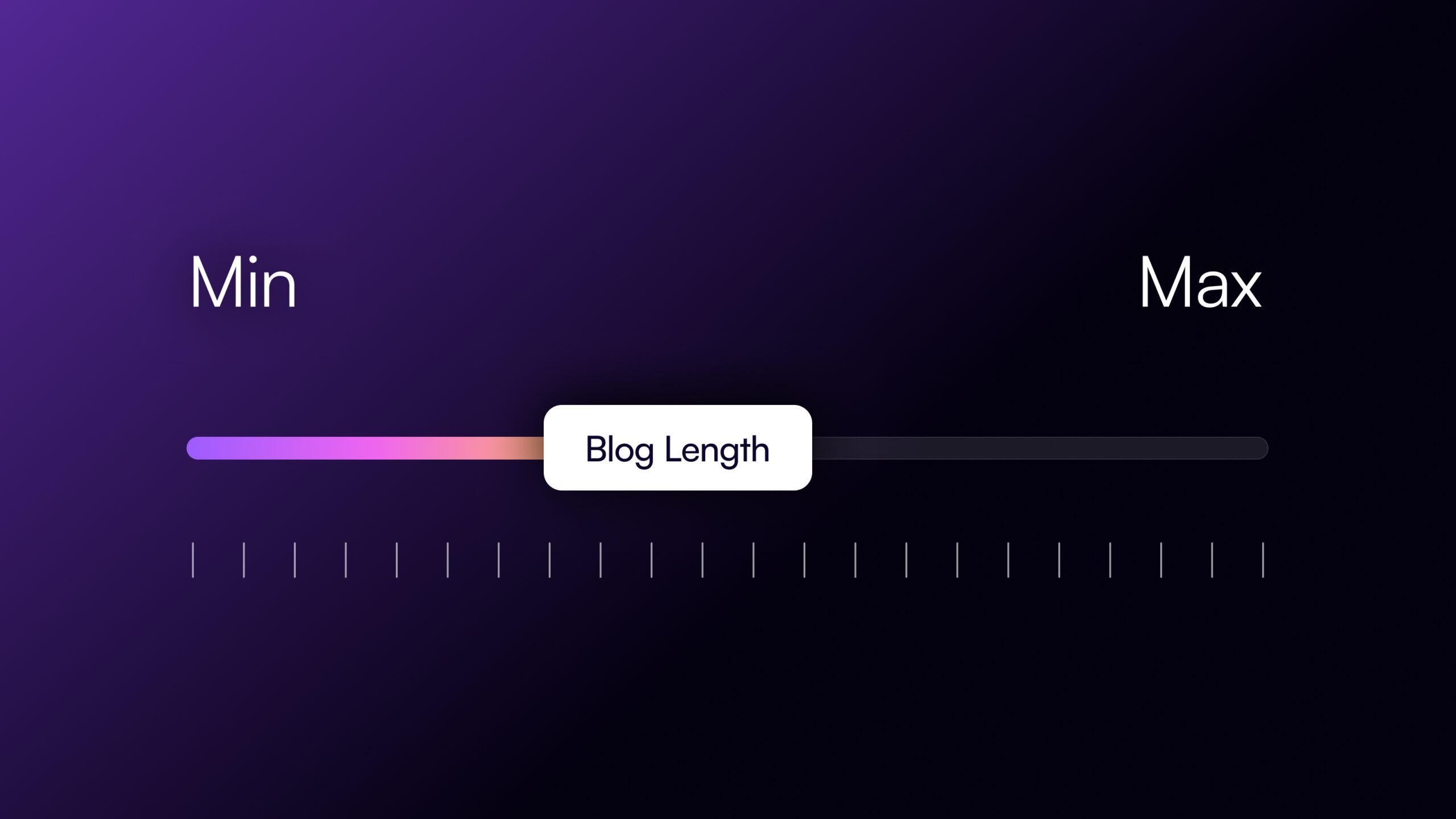
![The 11 Best AI Writing Tools to Try in 2025 [Tried & Tested]](/wp-content/uploads/AI-Writing-tools-For-Business.jpg)
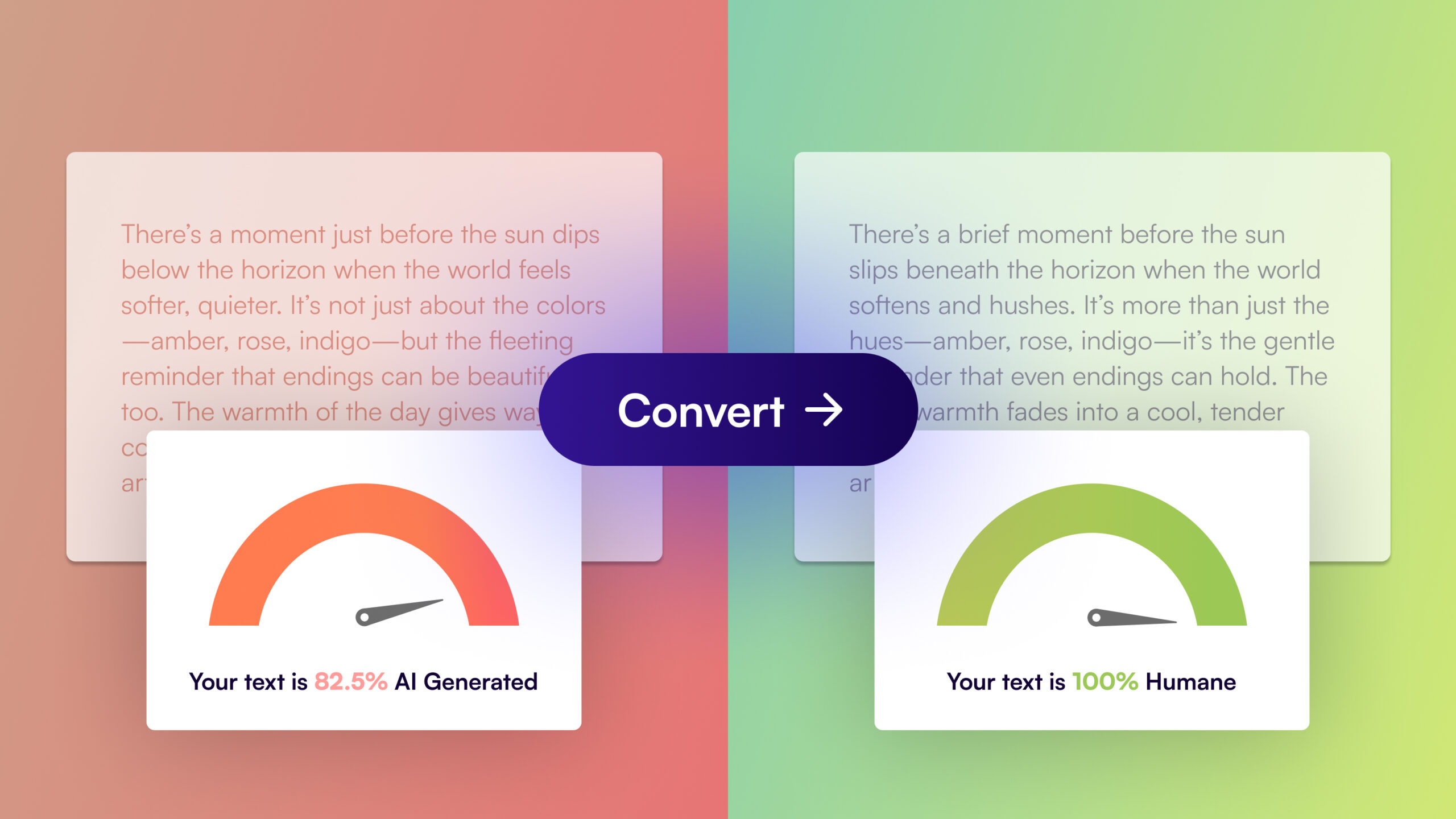
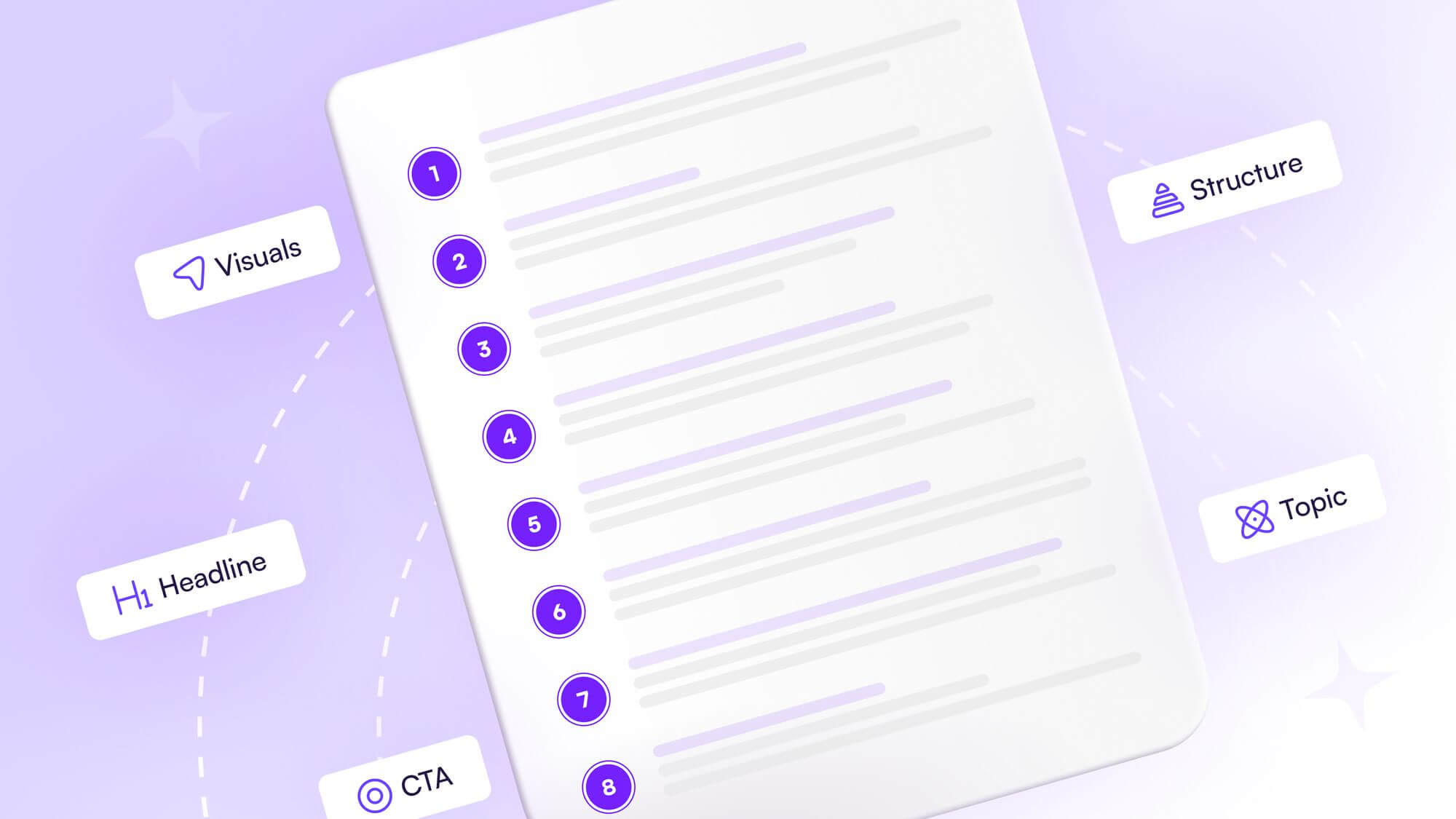
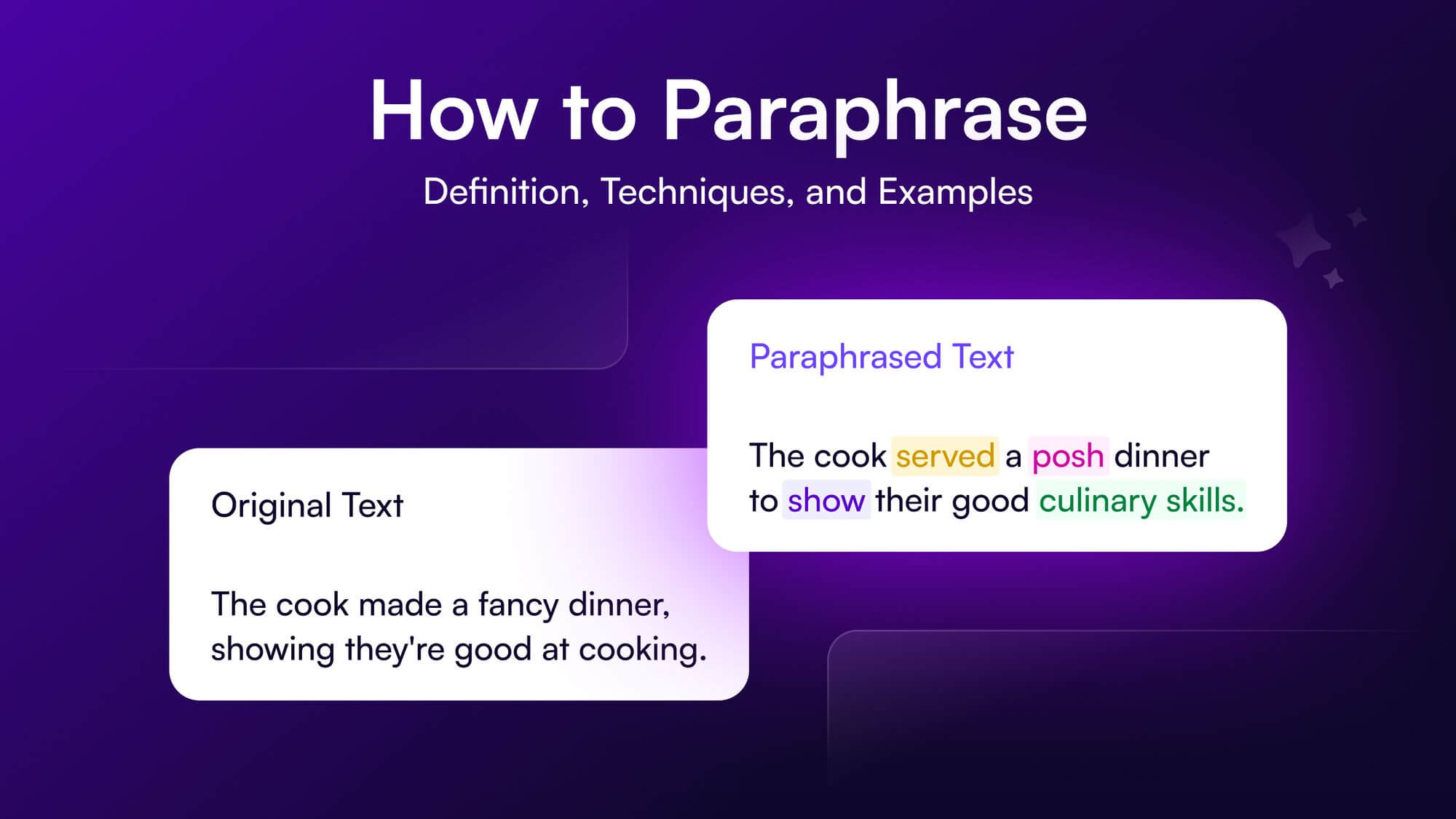


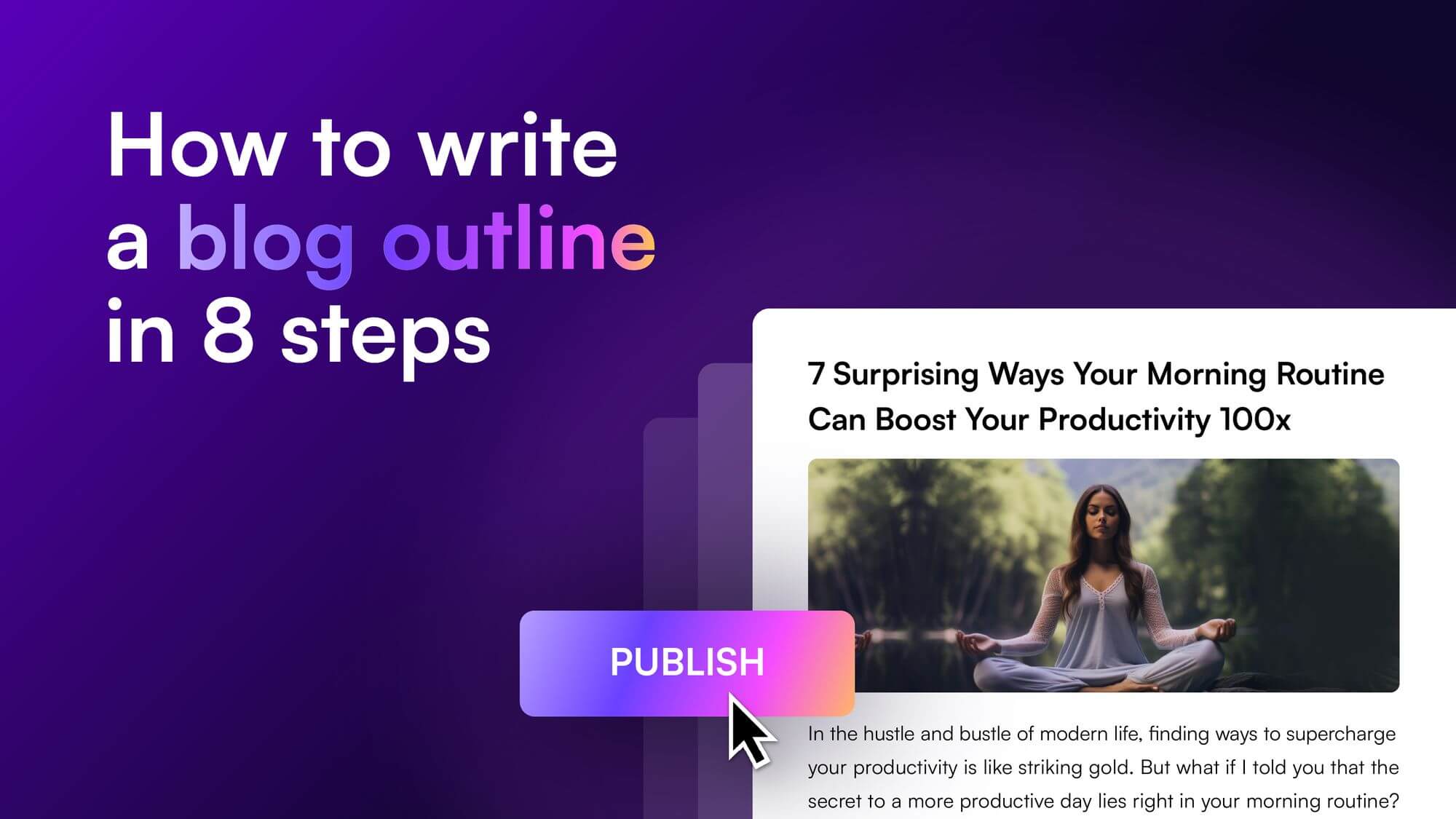

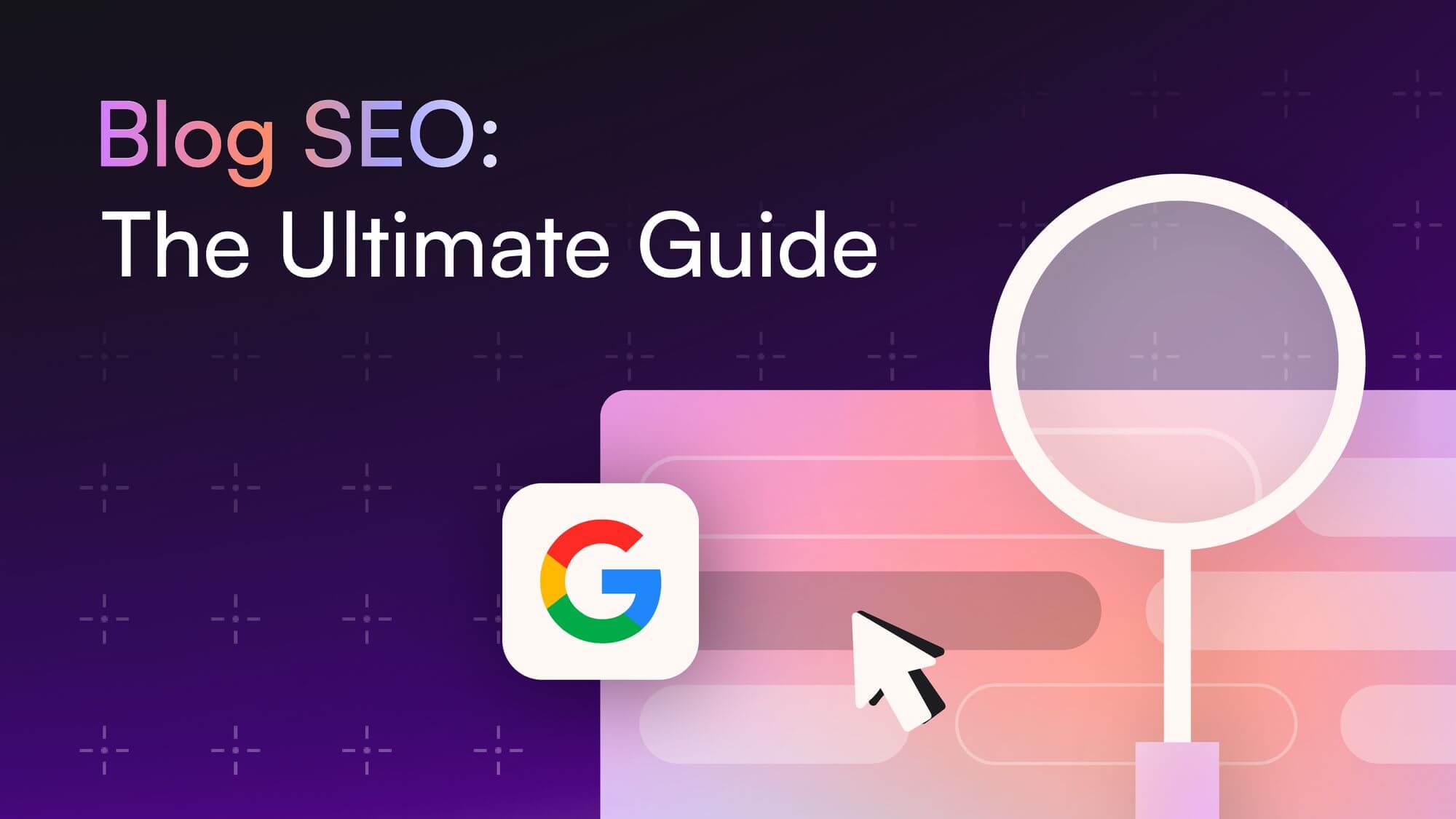

![How to Write a Blog in 2025: A Step-by-Step Guide [+Free Checklist]](/wp-content/uploads/How-to-write-a-blog-Thumbnail.jpg)


